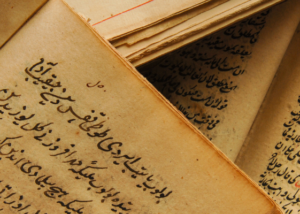Quran
Hadith
Islamic Text
The Hadith narrations are generally weak. However, it may be Hasan Lighayrihi.
حَدَّثَنَا حَسَنٌ، حَدَّثَنَا ابْنُ لَهِيعَةَ، حَدَّثَنَا دَرَّاجٌ، عَنْ أَبِي الْهَيْثَمِ، عَنْ أَبِي سَعِيدٍ، عَنْ رَسُولِ اللهِ صَلَّى اللهُ عَلَيْهِ وَسَلَّمَ أَنَّهُ قَالَ: الشِّتَاءُ رَبِيعُ الْمُؤْمِنِ
Hasan informed us saying, Ibn Lahi’ah informed us saying, Daraaj narrated from, Abi al-Haytham from Abi Saeed (May Allah Most High be pleased with him) who narrated that the Messenger of Allah ﷺ said, ‘The wintertime is the spring of the believer.’ (Musnad Ahmad, 11716).
In the Hadith above it is narrated that the Prophet ﷺ said, ‘The wintertime is the spring of the believer.’ However, the chain has Ibn Lahi’ah in it, who has been considered weak by many Imams of Hadith. It also has Abu al-Haytham in it who is differed over with regards to his narrations, with many considering him to be a weak narrator.
رواه أبو يعلى والعسكري بتمامه، وأحمد وأبو نعيم بالاقتصار على “الشتاء ربيع المؤمن”، كلهم رووه عن أبي سعيد مرفوعًا، وفي سنده أبو الهيثم، ضعفه جماعة ووثقه آخرون كابن معين وأضرابه؛ على أن لهذا الحديث شواهد فيصير حسنا لغيره. (كشف الخفاء ومزيل الإلباس)
It was narrated by Abu Ya’la and al-Askari completely. And by Ahmad and Abu Nu’aym in an abridged manner, with the words ‘The wintertime is the spring of the believer.’ They all narrated from Abu Sa’eed elevating it (to the Prophet ﷺ). Abu al-Haytham is in the chain. Many considered him to be weak, and others said he is sound. Like Ibn Ma’een and others similar to him. Despite this, the Hadith has supporting narrations, so it is Hasan Lighayrihi. (Imam al-Ajlooni, Kashf al-Khafa).
In the Nass (text) above Imam al-Ajlooni confirms that the narration in Ahmad is weak. However, he considers the Hadith to be Hasan Lighayrihi due to supporting narrations. There are a number of supporting narrations for this Hadith. Some of which are discussed below.
حَدَّثَنَا وَكِيعٌ، عَنْ سُفْيَانَ، عَنْ أَبِي إِسْحَاقَ، عَنْ نُمَيْرِ بْنِ عَرِيبٍ، عَنْ عَامِرِ بْنِ مَسْعُودٍ الْجُمَحِيِّ قَالَ: قَالَ رَسُولُ اللهِ صَلَّى اللهُ عَلَيْهِ وَسَلَّمَ: الصَّوْمُ فِي الشِّتَاءِ الْغَنِيمَةُ الْبَارِدَةُ
Amir Ibn Masood al-Jumahi narrated that the Messenger of Allah ﷺ said, ‘Fasting in the winter is a cool treasure.’
This Hadith is weak for a number of reasons. Amongst them is the fact Amir Ibn Masood al-Jumahi is not a Sahabi but is narrating directly from the Prophet ﷺ. He is also a weak narrater due to being Majhool (unknown). However, multiple weak narrations do strengthen one another. Therefore, this narration remains beneficial since it supports the meaning found in the narration above.
This narration is also found in Sahih Ibn Khuzaymah (2145). However, that narration also has Amir Ibn Masood in the chain. (Imam) Ibn Abi Shaybah narrated it in his Musanaf (9741) too. He narrates from Amir Ibn S’ad and not Amir Ibn Masood, which strengthens the narration. Although it is also weak due to Numayr and Abu Ishaq, both of whom are Majhool (unknown).
Imam Tabarani in al-Mujam Sagheer (716) narrates the same Hadith with a different chain. This chain also has weakness since it contains Sa’eed bin Basheer, who was a strong narrator but would make mistakes. As mentioned by Imam al-Haythami:
رَوَاهُ الطَّبَرَانِيُّ فِي الصَّغِيرِ، وَفِيهِ سَعِيدُ بْنُ بَشِيرٍ، وَهُوَ ثِقَةٌ، وَلَكِنَّهُ اخْتَلَطَ. (مجمع الزوائد ومنبع الفوائد)
It was narrated by (Imam) al-Tabarani in al-Sagheer. It contains Sa’eed bin Basheer, who was a strong narrator but would confuse narrations. (Imam al-Haythami, Majma al-Zawaid).
In light of this it seems that the view of Imam al-Ajlooni is supported. Imam al-Haythami also considered the Hadith in Ahmad to be Hasan although he did not specify Lighayrihi:
رَوَاهُ أَحْمَدُ وَأَبُو يَعْلَى، وَإِسْنَادُهُ حَسَنٌ
It was narrated by Ahmad and Abu Ya’la. The chain is Hasan. (Imam al-Haythami, Majma al-Zawaid).
As for the meaning of the Hadith, it was clarified in the narration of Imam al-Bayhaqi:
أَخْبَرَنَا أَبُو عَبْدِ اللهِ الْحَافِظُ، ثنا أَبُو الْعَبَّاسِ مُحَمَّدُ بْنُ يَعْقُوبَ , ثنا مُحَمَّدُ بْنُ إِسْحَاقَ، ثنا أَبُو الْأَسْوَدِ، ثنا ابْنُ لَهِيعَةَ، عَنْ دَرَّاجٍ أَبِي السَّمْحِ، عَنْ أَبِي الْهَيْثَمِ، عَنْ أَبِي سَعِيدٍ الْخُدْرِيِّ قَالَ: قَالَ رَسُولُ اللهِ صَلَّى اللهُ عَلَيْهِ وَسَلَّمَ: الشِّتَاءُ رَبِيعُ الْمُؤْمِنِ قَصُرَ نَهَارُهُ فَصَامَ وَطَالَ لَيْلُهُ فَقَامَ “
Abu Saeed al-Khudri (May Allah Most High be pleased with him) narrated that the Messenger of Allah ﷺ said, ‘The wintertime is the spring of the believer. The days are short, so he fasts. The night is long so he stands (in prayer)’ (Imam al-Bayhaqi al-Sunan al-Kubra 8456, weak).
Therefore, the believer’s soul is rejuvenated and strengthened in the winter because it is easier to accomplish spiritual works. The springtime is often connected to rejuvenation. This winter was referred to as spring in the Hadith.
And Allah Most High Knows Best.
-Answered by Shaykh Noorud-deen Rashid (22.11.2022)
See also:
What do the Hadith gradings mean
See also video:






